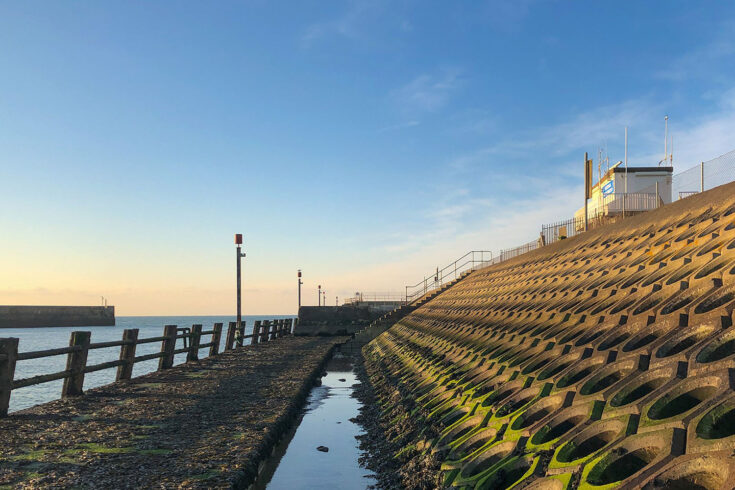Concrete causes about 8% of global carbon emissions. If it were a country, it would be the world’s third largest emitter.
JP Concrete, a Nottinghamshire based innovative concrete products manufacturer, has been developing and testing sustainable construction products that are kinder to the planet and result in resilient structures.
They are lowering use of cement by replacing it with alternative binders which are by-products of other industries. They are also adding a bacteria-based ‘self-healing’ agent to help concrete heal its own cracks.
Director of Innovation and Sustainability, Vighnesh Daas said:
Research has shown bacteria based self-healing concrete can increase durability of concrete by up to 30% compared to standard reinforced concrete whilst also reducing water permeability.
About the project
After realising the route to market is tricky and they would need to invest significantly, they joined the Innovate UK Scaling the Edge programme. This was delivered by Queen’s University Belfast in collaboration with Helix.
The programme helped them to ‘de-risk’ their new venture and allowed them to test it on the market to assess needs of customers and evaluate their value proposition.
The bio-based, self-healing concrete started out as an added value offering for JP Concrete’s precast products.
But it quickly gained a lot of interest within other parts of the construction industry. These being concrete suppliers, contractors and designers who are wanting to build more sustainably and responsibly to counter the effects of climate change.
The company decided to make it available as a separate product line, called Sensicrete.
Impacts of the project
Vighnesh said:
Scaling the Edge has embedded innovation into JP Concrete’s business operating model in under a year. From being on the programme to where we are today the business is totally different in its direction and ways of working.
We’re now growing the Sensicrete range by addition of ‘eco-engineered’ products which are inspired from nature and allow bio-diversity gain around concrete structures while making them less intrusive to the local environment.
Since completing Innovate UK’s Scaling the Edge, JP Concrete has started the first trial of Sensicrete in Northern Ireland.
Vighnesh mentioned:
As a former Knowledge Transfer Partnership (KTP) Associate at Queen’s University Belfast, I knew the capabilities of the team in successful commercialisation of research. It was a no-brainer to start here.
JP Concrete is now working with Queen’s to help start-ups and small and medium-sized enterprises in the built environment with innovative solutions to scale-up and validate their products in the construction industry.
Find out more
Sensicrete provides low-carbon, bio-based solutions for construction, infrastructure and marine environments. Watch this YouTube video on Sensicrete: self healing concrete to find out more.
Top image: Credit: JP Concrete

